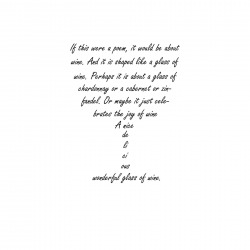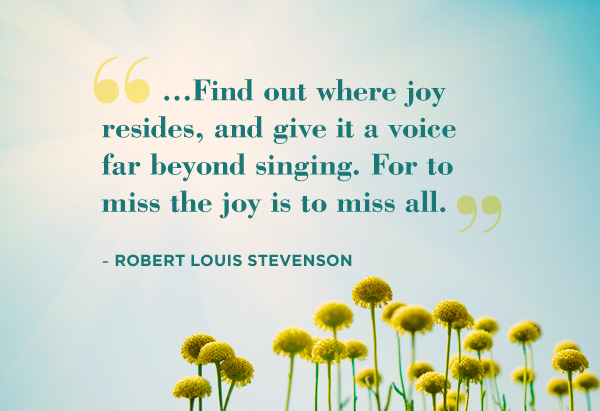Famous Poetry Lines Biography
Source(Gogle.com.pk)In "Wendell Berry: Poet & Prophet," an exclusive interview with Bill Moyers that aired on public television stations across the country in early October, the poet Wendell Berry discussed his life and work as a passionate advocate for the earth. Take a look at this short exclusive clip from the program of Berry reading his poem "The Peace of Wild Things."
Academy of American Poets Prizes Announced
Congratulations to the 2013 recipients of the Academy of American Poets Prizes, our annual series through which we award over $200,000 to poets at various stages of their careers.
Philip Levine
Wallace Stevens Award
Carolyn Forché
Academy of American Poets Fellowship
Patricia Smith
Lenore Marshall Poetry Prize
Jillian Weise
James Laughlin Award
John Taylor
Raiziss/de Palchi Translation Fellowship
Cynthia Hogue and Sylvain Gallais
Harold Morton Landon Translation Award
Read more >
POEM-A-DAY
Oct 9, 2013
Love Letter to a Stranger
by Jenny Browne
Tell us of a bypassed heart beating in 12C,...
Get Poem-A-Day Every Morning
Go
SPOTLIGHTS
Willie Perdomo Poet
Willie Perdomo
The author of several poetry collections, Willie Perdomo's latest book, The Essential Hits of Shorty Bon Bon, is forthcoming from Penguin Poets in April 2014.
Audio
Improper(ty) Behavior
by Evie Shockley
audioplayer
Video
Breaking the Line, Breaking the Narrative
by Sharon Olds
Spotlight Video
Essay
The Line Between Two Worlds: Tracy K. Smith and Elizabeth Alexander in Conversation
by Tracy K. Smith
I remember a particular afternoon in the spring of my sophomore year, being blown away by the visceral impact of Seamus Heaney's poem "Digging." I felt transported by the sounds of language and compelled by the ways in which looking closely and remembering rendered an almost cinematic kind of transformation.
CONNECT WITH POETS.ORG
FROM OUR SPONSORS
RESOURCES
Poets Forum: Join us in New York City from October 24 to 26, 2013, for a series of events exploring the ever-changing landscape of contemporary poetry in America.
Dear Poet Project: Read the responses our Chancellors wrote to students.
National Poetry Calendar: Save the date for poetry events throughout the United States.
Poetry Lesson Plans: Explore seven lesson plans prepared by a curriculum specialist to align with Common Core Standards.
Great Poems to Teach: Find poems to recite, as well as favorite examples of imagery, form, narrative, and irony.
Poems for Teens: Browse a list of poems about the teen experience.
Listen Up: Classic recordings by Dylan Thomas, Robert Frost, Langston Hughes, and others. Hear them all.This article is about the art form. For other uses, see Poetry (disambiguation).
Literature
Major forms
Novel Poem Drama
Short story Novella
Genres
Comedy Drama Epic
Erotic Nonsense Lyric
Mythopoeia Romance Satire
Tragedy Tragicomedy
Media
Performance (play) Book
Techniques
Prose Poetry
History and lists
Outline of literature
Glossary of terms
History (modern)
Books Writers
Literary / Poetry awards
Discussion
Criticism Theory
Sociology Magazines
Portal icon Literature portal
v t e
"Poem", "Poems", and "Poetic" redirect here. For other uses, see Poem (disambiguation), Poems (disambiguation), and Poetic (disambiguation).
Poetry (from the Greek poiesis — ποίησις — meaning a "making", seen also in such terms as "hemopoiesis"; more narrowly, the making of poetry) is a form of literary art which uses aesthetic and rhythmic[1][2][3] qualities of language—such as phonaesthetics, sound symbolism, and metre—to evoke meanings in addition to, or in place of, the prosaic ostensible meaning.
Poetry has a long history, dating back to the Sumerian Epic of Gilgamesh. Early poems evolved from folk songs such as the Chinese Shijing, or from a need to retell oral epics, as with the Sanskrit Vedas, Zoroastrian Gathas, and the Homeric epics, the Iliad and the Odyssey. Ancient attempts to define poetry, such as Aristotle's Poetics, focused on the uses of speech in rhetoric, drama, song and comedy. Later attempts concentrated on features such as repetition, verse form and rhyme, and emphasized the aesthetics which distinguish poetry from more objectively-informative, prosaic forms of writing. From the mid-20th century, poetry has sometimes been more generally regarded as a fundamental creative act employing language.
Poetry uses forms and conventions to suggest differential interpretation to words, or to evoke emotive responses. Devices such as assonance, alliteration, onomatopoeia and rhythm are sometimes used to achieve musical or incantatory effects. The use of ambiguity, symbolism, irony and other stylistic elements of poetic diction often leaves a poem open to multiple interpretations. Similarly, metaphor, simile and metonymy[4] create a resonance between otherwise disparate images—a layering of meanings, forming connections previously not perceived. Kindred forms of resonance may exist, between individual verses, in their patterns of rhyme or rhythm.
Some poetry types are specific to particular cultures and genres and respond to characteristics of the language in which the poet writes. Readers accustomed to identifying poetry with Dante, Goethe, Mickiewicz and Rumi may think of it as written in lines based on rhyme and regular meter; there are, however, traditions, such as Biblical poetry, that use other means to create rhythm and euphony. Much modern poetry reflects a critique of poetic tradition,[5] playing with and testing, among other things, the principle of euphony itself, sometimes altogether forgoing rhyme or set rhythm.[6][7] In today's increasingly globalized world, poets often adapt forms, styles and techniques from diverse cultures and languages.
Contents [hide]
1 History
1.1 Western traditions
1.2 20th-century disputes
2 Elements
2.1 Prosody
2.1.1 Rhythm
2.1.2 Meter
2.1.3 Metrical patterns
2.2 Rhyme, alliteration, assonance
2.2.1 Rhyming schemes
2.3 Form
2.3.1 Lines and stanzas
2.3.2 Visual presentation
2.4 Diction
3 Forms
4 Genres
5 See also
6 Notes
7 Further reading
7.1 Anthologies
History[edit]
Aristotle
Main articles: History of poetry and Literary theory
Poetry as an art form may predate literacy.[8] Epic poetry, from the Indian Vedas (1700–1200 BC) and Zoroaster's Gathas to the Odyssey (800–675 BC), appears to have been composed in poetic form to aid memorization and oral transmission, in prehistoric and ancient societies.[9] Other forms of poetry developed directly from folk songs. The earliest entries in the ancient compilation Shijing, were initially lyrics, preceding later entries intended to be read.[10]
The oldest surviving epic poem is the Epic of Gilgamesh, from the 3rd millennium BC in Sumer (in Mesopotamia, now Iraq), which was written in cuneiform script on clay tablets and, later, papyrus.[11] Other ancient epic poetry includes the Greek epics Iliad and Odyssey, the Old Iranian books the Gathic Avesta and Yasna, the Roman national epic, Virgil's Aeneid, and the Indian epics Ramayana and Mahabharata.
The efforts of ancient thinkers to determine what makes poetry distinctive as a form, and what distinguishes good poetry from bad, resulted in "poetics"—the study of the aesthetics of poetry.[12] Some ancient poetic traditions; such as, contextually, Classical Chinese poetry in the case of the Shijing (Classic of Poetry), which records the development of poetic canons with ritual and aesthetic importance.[13] More recently, thinkers have struggled to find a definition
Famous Poetry Lines in Urdu SMS in Urdu Pics by Wasi Shah Wallpapers About Love on Facebook in English
Famous Poetry Lines in Urdu SMS in Urdu Pics by Wasi Shah Wallpapers About Love on Facebook in English
Famous Poetry Lines in Urdu SMS in Urdu Pics by Wasi Shah Wallpapers About Love on Facebook in English
Famous Poetry Lines in Urdu SMS in Urdu Pics by Wasi Shah Wallpapers About Love on Facebook in English
Famous Poetry Lines in Urdu SMS in Urdu Pics by Wasi Shah Wallpapers About Love on Facebook in English
Famous Poetry Lines in Urdu SMS in Urdu Pics by Wasi Shah Wallpapers About Love on Facebook in English
Famous Poetry Lines in Urdu SMS in Urdu Pics by Wasi Shah Wallpapers About Love on Facebook in English

Famous Poetry Lines in Urdu SMS in Urdu Pics by Wasi Shah Wallpapers About Love on Facebook in English

Famous Poetry Lines in Urdu SMS in Urdu Pics by Wasi Shah Wallpapers About Love on Facebook in English

Famous Poetry Lines in Urdu SMS in Urdu Pics by Wasi Shah Wallpapers About Love on Facebook in English
Famous Poetry Lines in Urdu SMS in Urdu Pics by Wasi Shah Wallpapers About Love on Facebook in English

Famous Poetry Lines in Urdu SMS in Urdu Pics by Wasi Shah Wallpapers About Love on Facebook in English
Famous Poetry Lines in Urdu SMS in Urdu Pics by Wasi Shah Wallpapers About Love on Facebook in English

Famous Poetry Lines in Urdu SMS in Urdu Pics by Wasi Shah Wallpapers About Love on Facebook in English

Famous Poetry Lines in Urdu SMS in Urdu Pics by Wasi Shah Wallpapers About Love on Facebook in English

Famous Poetry Lines in Urdu SMS in Urdu Pics by Wasi Shah Wallpapers About Love on Facebook in English

No comments:
Post a Comment